All about jewelers
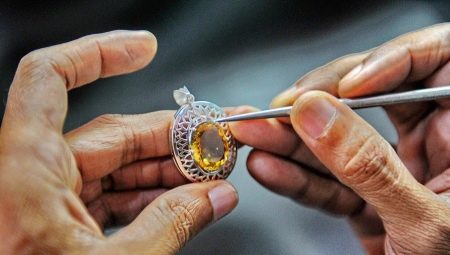
It is very important and interesting to know everything about jewelers, about training for this work and specialty. Many people are reasonably interested in how much a master jeweler earns, how to become one on their own. In this regard, there are still questions about where to study to be a jeweler in Russia, what are the main requirements for such specialists, a number of other nuances.
Who are they?
The word “jeweler” itself is by definition associated with luxury and chic items. Already in ancient times, people tried in every possible way to decorate themselves, their clothes and homes. With the advent of precious metals and stones, this has become much easier. But at the same time it was necessary to single out just a group of professionals who were engaged in the relevant activities.
Already in ancient Egypt and other early civilizations, the aristocracy in general and the rulers in particular could not imagine themselves without jewelry.
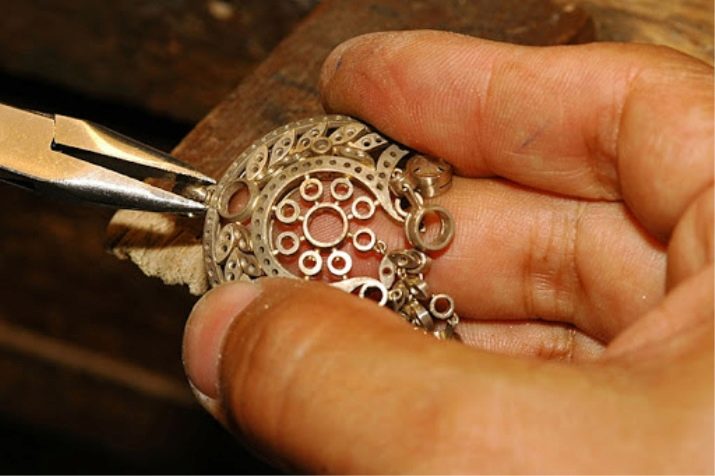
Throughout the subsequent history of mankind, jewelers also showed themselves. Their products were constantly improved and over the centuries they only became more elegant. They served as an object of status and prestige. Therefore, the craftsmen associated with their production themselves had a higher status than other artisans, although the work of those was sometimes no less responsible, important and delicate at the same time.
It is noteworthy that the latest scientific and technological achievements and means have always been actively used in jewelry.
Pros and cons of the profession
Among the advantages of such activities are:
-
comparative stability (even in difficult and crisis times, the need for the services of a jeweler hardly falls);
-
high level of income;
-
flexible free schedule, determined individually, and the ability to even independently allocate your time as part of the execution of a package of orders;
-
the opportunity to achieve fame and fame;
-
relatively comfortable conditions of activity (always in a well-equipped room, and not on the street, in a noisy workshop or office).
But the jewelry practice also has negative sides:
-
direct financial liability, and very serious;
-
the need to constantly work with small details (which has an extremely negative effect on vision and posture);
-
constant sedentary and sedentary work;
-
high cost of the required tool;
-
the likelihood of losing reputation and all regular customers even due to a minor mistake;
-
a fairly high level of injury;
-
the need to use aggressive and toxic substances in the work;
-
heightened "interest" on the part of criminals (both "professional" criminals and clients who have conceived some kind of fraud) cannot be ruled out - including the increased risk of robbery and robbery.
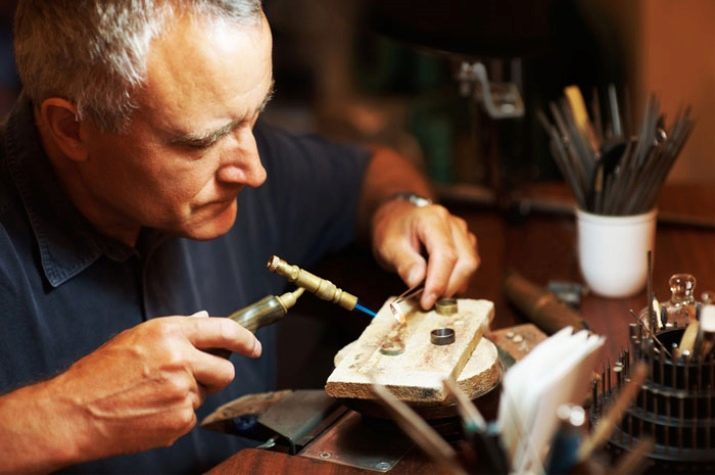
Overview of specialties
A jeweler is more of a generalist. He can perform a wide variety of professional assignments, although not of a very high level. Also, a universal jeweler is often called a professional who is ready to do "anything". But this area also has its own internal specialization. All "rings and bracelets", as well as necklaces, necklaces, raw materials themselves, semi-finished products have their own value. It is the task of the appraiser to establish it. In terms of the level of trust in relations with clients, it can only be compared with a personal lawyer.
It is appraisers who are hired by pawnshops and other institutions that buy precious products. They also exist in workshops, where without them it is impossible to set an economically justified price for a particular order, for the repair of jewelry. Reputation is the most important informal asset of a jeweler-appraiser, its:
-
it is very difficult to make money;
-
easy to lose;
-
unrealistic to restore.
Evaluation, albeit on a different scale, is carried out even in special factories. They also try to immediately determine the commodity price of raw materials and manufactured products. But wherever an appraiser works, he or she should have a gemological laboratory ready anyway. A number of studies can only be carried out on modern equipment. The notorious examination through a magnifying glass, shown even in many movies, is just a preliminary procedure.
The appraiser is contacted when:
-
property disputes;
-
organizing auctions;
-
section of inheritance;
-
determining the degree of material damage during deformation of jewelry;
-
calculating the taxable base;
-
calculation of customs tax and in some other cases.
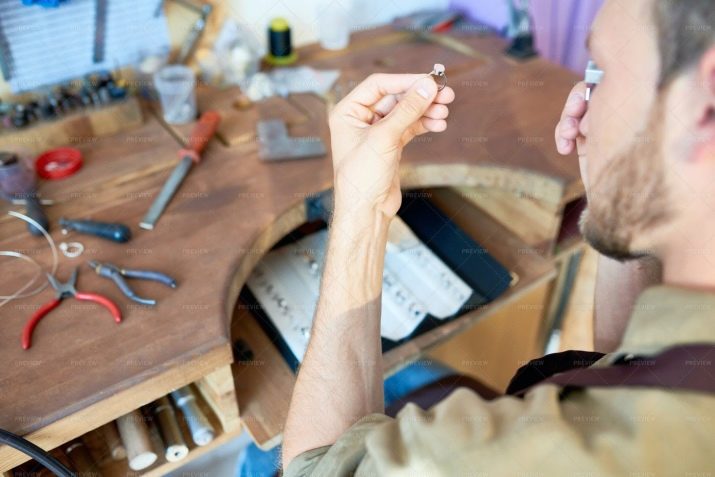
A completely different profession is an expert in the field of jewelry. The federal law on appraisal activities explicitly states that experts can check reports and documents drawn up by appraisers, but they do not have the right to conduct an assessment. Independent expert technicians and forensic experts are subject to other regulations. However, they use standard research and assessment techniques in the same way. Therefore, the requirements for their practical qualifications do not differ.
The jeweler-polisher (which follows from the name of the profession) is busy eliminating defects and roughness. Also engaged in the production of finished products:
-
assemblers (those who assemble and fix products completely);
-
foundry workers;
-
cutters;
-
fixers (fixing precious and semi-precious stones in frames);
-
graphic designers;
-
fashion designers (real elite, creators of new models and modifications).
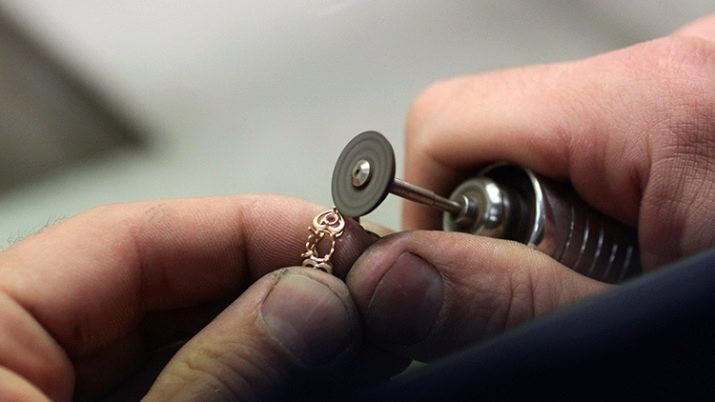
What do jewelers do?
Of course, the order of work and the duties of jewelers are fixed in the job descriptions. So, the master wagon:
-
prepares everything himself, from thinking over a sketch of the planned decoration to covering the product with protective compounds and its solemn presentation to the customer;
-
processes the necessary materials manually or using complex technical devices;
-
confidently works with stones and metals equally;
-
repairs various products;
-
conducts, if necessary, their assessment;
-
with a high level of qualifications - prepares unique jewelry, following in their manufacture both the traditions of the profession in the country and the world, and the latest design and aesthetic trends.
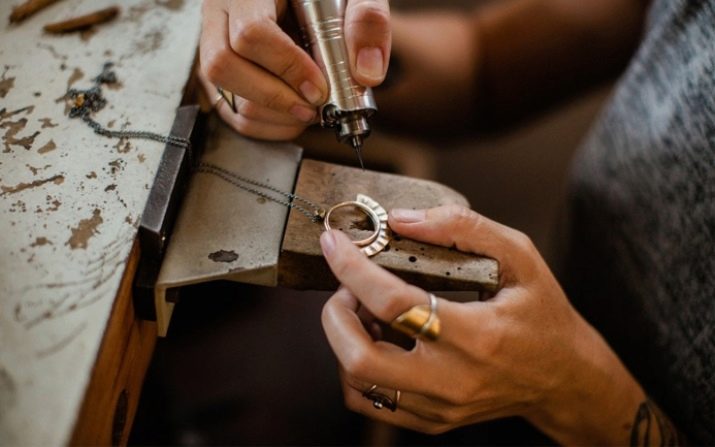
Primary requirements
Knowledge and skills
Necessarily the category of knowledge of jewelers includes:
-
occupational health and safety standards;
-
the procedure for using personal protective equipment;
-
methods of preparing materials and products for work;
-
the main types of marriage, methods of its prevention, detection and liquidation;
-
the procedure for degreasing and special washing of products;
-
the procedure for cutting inserts, preparing them for installation and the installation itself;
-
rules for working with the tool;
-
mounting technology for simple jewelry;
-
varieties of artistic processing;
-
basic physical and chemical properties of the materials used;
-
methods and rules for assessing the quality of goods and their parts.
As for the immediate skills, the universal jeweler should be able to:
-
to solder with hard solder, determining its quality externally;
-
bleach;
-
anneal;
-
mount;
-
fix with glue;
-
sharpen and refuel the tool, heat it;
-
stretch wire of various cross-sections;
-
pass the frame;
-
adjust the sockets according to the inserts;
-
to solder filigree;
-
wind filigree;
-
melt the grain;
-
etch metal;
-
change and install heavily wearable parts;
-
use calibers;
-
take into account the tolerances in the process of completing the finished assembly;
-
draw up and read special drawings.
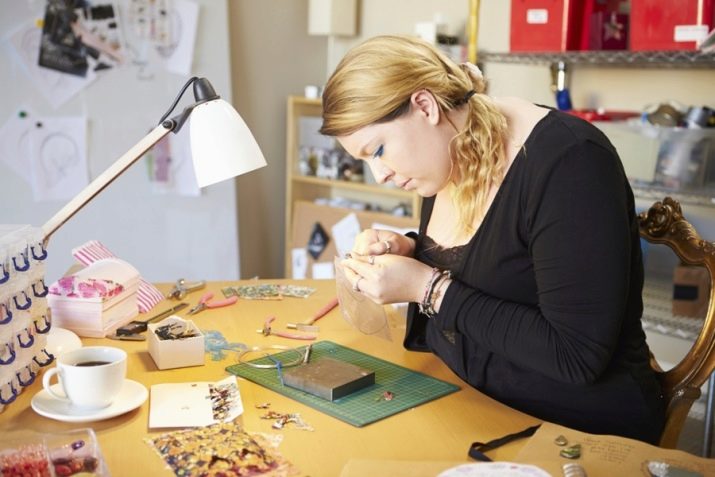
Personal qualities
A good jeweler is always patient, hardy, calm and assiduous - everyone knows about this. But it is equally important for him to be dexterous and able to quickly switch attention between objects and processes. Even in this profession, there is nothing to do for those who:
-
has no creative thinking;
-
has problems with vision and touch;
-
has not developed fine motor skills;
-
not communicative enough (you will have to negotiate with different people);
-
unable to control their time;
-
draws poorly and has poor visual memory or problems with aesthetics.
Where do they work?
The workplace of a jeweler is almost the same in a factory, in a workshop, and in an expert laboratory. You will not find halogen lamps there - only LED ones, and always with the least flicker. There are certainly special tables and a large number of specialized tools. Jewelers' workplaces are equipped in a similar way both in repair centers and in small retail shops. And even in pawnshops a separate zone is allocated for them.
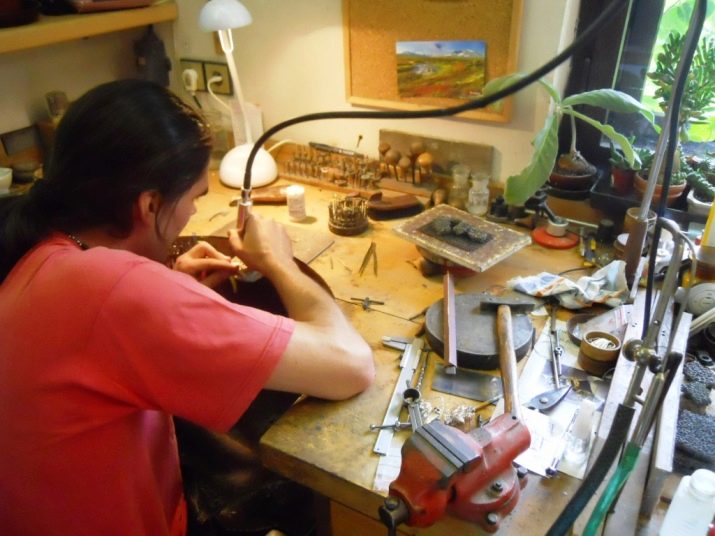
Education
A jeweler is not a profession in which you can become a trained and valuable specialist, even at the weakest level, on your own.... You can't do without the help of professional mentors. Video tutorials and ready-made tutorials provide only the most superficial knowledge. You can study jewelry in a variety of training centers - the choice depends mainly on where you plan to work in the future and in what capacity. So, to get a place at the plant, you can limit yourself to studying at a college or even a vocational school.
If you set more ambitious goals and creative plans, it is useful to go to different universities. Appropriate training is provided by both art academies and specialized institutes. It is useful after that to take additional courses to master the practical nuances.And some successful jewelers first mastered the profession from practicing craftsmen and only then, after a few years, went to submit documents to the university. This moment usually came when purely practical skills were no longer enough.
Admission to a higher or secondary specialized educational institution implies passing the USE in the order of testing. Basically, checks are on the following subjects:
-
Russian language;
-
maths;
-
technical drawing;
-
history;
-
Painting.
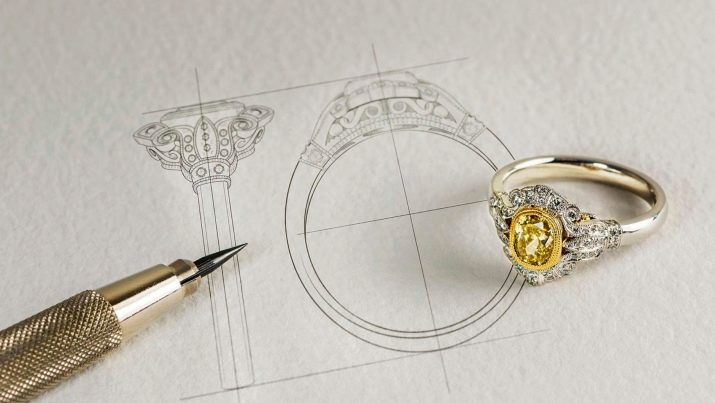
Most higher education institutions prepare their graduates for 5 years.
After graduating from 9 classes, you can go to college or technical school for 2-3 years. There are also a number of proposals for distance learning. But even after employment, you will have to study again, already at seminars and trainings - because everything is constantly changing. Basically, future jewelers study in Russia in:
-
Moscow Art Stroganov Academy;
-
National Technological University;
-
Moscow State University (Faculty of Geology);
-
the Polytechnic University of St. Petersburg, at the Institute of Technology in the same place;
-
art and industrial college named after Vasnetsov;
-
College named after Faberge;
-
Moscow educational complex;
-
Ural State Mining University;
-
Ural Federal University;
-
Novosibirsk Pedagogical University;
-
MIREA;
-
OmSU;
-
University of the Pacific;
-
Kazan College of Folk Arts and Crafts;
-
Ufa College of Art and Humanities;
-
Krasnoyarsk College of Services and Entrepreneurship;
-
Altai Polytechnic College.
Salary and career
A jeweler who starts his career can apply for a salary of 35 to 50 thousand rubles. Such rates are offered both in private workshops and in large factories. Only over time, by “filling your hand” and raising the level of your developments, you can improve your well-being. There are quite a few people who, thanks to their own creative developments, get 3-5 times more than beginners. If you have entrepreneurial talents, you can gradually prepare for the opening of your own store with a workshop.
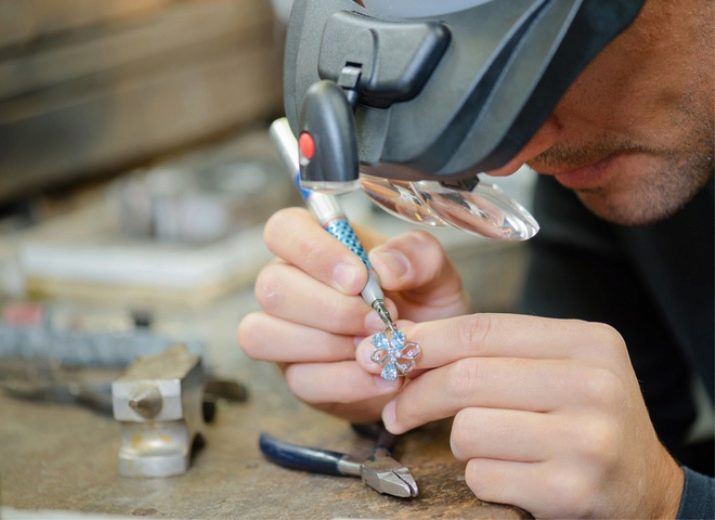
It will be possible to earn even more in such cases, but the risks also grow.








